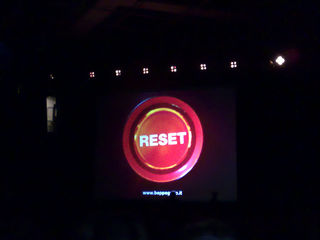Resilience
A Fresh Start Yet Again
A short-short story about passivity, resilience, and change.
Posted October 4, 2017

As an alternative to the how-to article, I occasionally offer a short-short story embedding a how-to lesson or two.
Even in kindergarten, Jeremy displayed his tendency to be passive, bookish, and eager to please. So he was largely invisible to teacher and classmates. He wanted friends but wasn’t the type to reach out. So despite urgings from his assertive dad, Jeremy became more and more reclusive.
But when his mother's new job relocated the family to a new city, Jeremy decided that, with his fresh start, he’d try to be more assertive. But he overreacted. He was demanding of his teacher and showing off to would-be friends. No surprise, that was received more poorly than his passivity. As a result, not only did he retreat to his former self, he moved further inward by becoming fastidious: he’d continually clean out and re-organize everything from his notebook binder to his socks drawer. He'd go to the nearby high school’s baseball games by himself, even doubleheaders, not only watching but keeping score, all the way down to how many pitches each pitcher had thrown.
When Jeremy was in 8th grade, his mom got another promotion requiring a move and while she was reluctant to move the family again, she got convinced when the employer allowed her to wait until Jeremy had finished junior high school.
Attending high school in yet another city, Jeremy decided to aim for moderation in interactivity and, instead of just watching baseball, he’d try out for the high school junior varsity. And he made the team although only because few people tried out, and even so, he spent most of the time on the bench, yes, keeping score, this time for the team’s benefit.
Personally, Jeremy had now hit a reasonable sweet spot: still basically introspective but outgoing enough to have a small circle of friends, even his first girlfriend. Alas, drenched in teenage hormones, he was a bit too persistent in trying to convince her to “go all the way,” and when she finally acceded, within weeks, she was pregnant, and unfortunate for him, she was against abortion.
He was terrified of being a father at age 16, facing two decades of financial and temporal responsibility because of a classic teenager lapse. He explained this to her but she insisted he "Man Up." He couldn't make himself but felt ashamed, dropped out of school, begged his parents for a little money to allow him to move to another city, and they gave him the money.
Without a high school diploma, Jeremy was limited to low-level jobs and got one selling cotton candy at the minor league baseball team stadium but soon got promoted to peanuts and when he turned 18, beer. On days he wasn’t selling, he’d still go to the game, score them and, between innings, study for a GED, the equivalent of a high-school diploma.
Jeremy had little money and less interest in going to college. So he decided he’d try to land a more substantive job with that baseball team by walking into the clubhouse. He wasn’t allowed to but because he worked at the stadium, the security guard let him in. In that way, he managed to land a job as “equipment technician,” a fancy way of saying he’d collect the dirty uniforms and towels and put them in the laundry bin and, when he was lucky, clean the baseball bats. Jeremy's quietness was appreciated by the athletes who often were bombastic in winning, belly-aching in losing.
During games, Jeremy wasn't allowed on the bench nor to have a second job selling beer in the stands, so he’d sit in the clubhouse watching the games on closed-circuit TV. (Most minor-league games aren’t telecast.) keeping score, with ever more nuance. He had learned what the team’s statistician does and Jeremy noted valuable things the statistician didn’t have time to record.
One day, the statistician asked to see what Jeremy was recording. Impressed, he asked if Jeremy want to trade his sweaty-laundry gig for a job as assistant statistician. He’d even get a pay raise. Not surprising, he was grateful for that next fresh start.
Jeremy’s career continued to evolve. Next it was statistician for a C-level minor league team, then B level, then right up to the majors and, in the ultimate victory, for the Elias Sports Bureau, which produces statistics for Major League Baseball.
Jeremy's next big fresh start was as a husband and father. His natural passivity and adolescent fervidity had given way to moderation. That enabled him to meet and marry a fine woman and they were good parents to two children.
That almost brings us up to date except that Jeremy had a cancer scare, which turned out to be a misdiagnosis. He was already counting his days and so he considers the doctor’s mea culpa to be his ultimate fresh start.
The takeaway
Have you had fresh starts? Have you taken advantage of them? Want to do anything different now, with or without having had a fresh start?
Do you need a fresh start now? How likely would a change of job, romantic partner, living situation, or geographic location help? Would an internal change be of greater value, for example, a new skill or attitude?
Dr Nemko’s nine books are available. You can reach career and personal coach Marty Nemko at mnemko@comcast.net.




